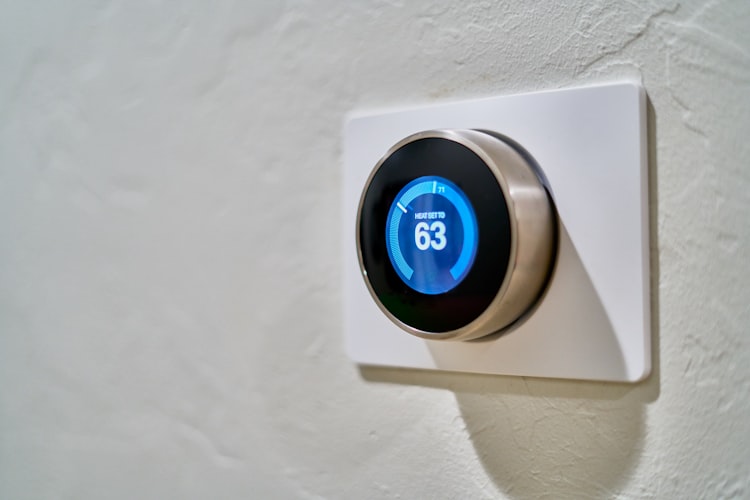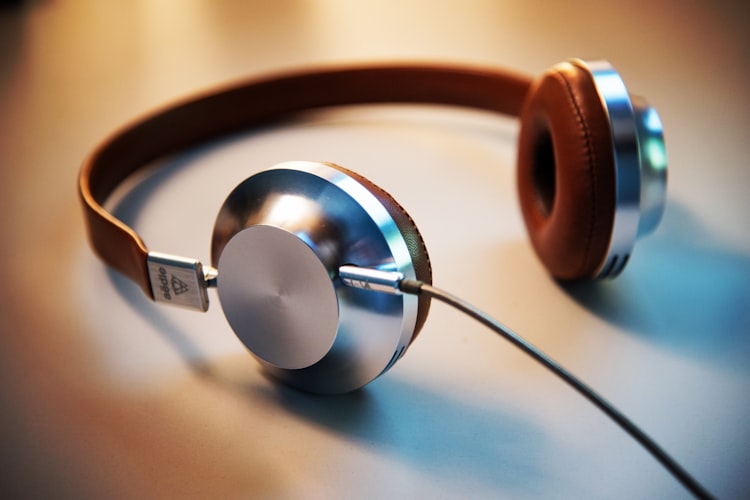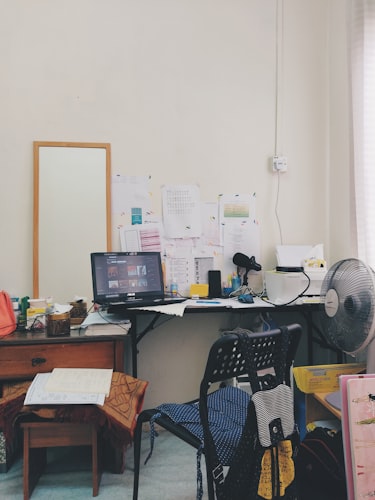While a CPAP machine can go a long way in helping you sleep soundly through the night, many people still find that they have trouble falling asleep in the first place. This can be especially true of those who are having trouble adjusting to a CPAP mask, or who have anxiety that makes it harder to fall asleep.
Quite often, however, your sleep environment could be what’s making it more difficult to fall asleep and stay asleep.
By making some crucial adjustments to your bedroom, you will be able to fall asleep faster so your CPAP machine can deliver the results it’s meant to. Here are some basic practices everyone can follow to create a healthier sleep environment.
1. Turn Down the Thermostat

Anyone who has ever had the air conditioner break down on a hot summer night knows how hard it can be to sleep when temperatures are too high. However, even a seemingly comfortable room temperature cold be making it harder to fall asleep.
In fact, researchers have found that for most people, the ideal temperature for sleep is around 65 degrees Fahrenheit. This is because cooler temperatures make it easier for your body to maintain a lower core temperature throughout the night, which helps you feel sleepy and stay asleep.
This temperature also makes it easier to add or remove layers to your bedding to find what is most comfortable for you personally.
2. Block Out the Light
Our body’s circadian rhythm is largely influenced by our exposure to light or darkness. Sunlight helps the body produce cortisol, a hormone that makes you feel more energized. When it gets dark, your body produces melatonin, which helps you relax and feel drowsy.
Because of this, exposure to artificial light can make it take longer to fall asleep.
This doesn’t mean you need to live in total darkness. But in the hours before bedtime, it is best to use dim light (such as a table side lamp while reading). It may also be helpful to block outside sources of light, such as a streetlamp, by using blackout curtains. Some people also benefit from wearing eye masks — particularly if the sun starts streaming through your window early in the morning.
3. Tune Out the Noise

Obviously, a quiet bedroom is going to make it easier to fall asleep. Unfortunately, you can’t always control sources of noise — such as what is going on in the street outside your window.
One of the best ways to deal with unwanted sounds is to use a white noise machine. These devices produce a soft, repetitive background sound, such as static or soothing ocean waves. By masking other sounds, it will be easier for you to fall asleep.
4. Hide Your Electronics
As much as you may enjoy scrolling through your Instagram feed before bedtime, this is the exact wrong thing to do if you want to fall asleep quickly.
This is because smartphones and other similar devices produce an artificial “blue light” that suppresses melatonin production even more than natural light. Interestingly, research indicates that even using your phone on “night mode” isn’t enough to address this issue.
The best solution is to put phones and other electronic devices away in the hour before bedtime. Reading a book or writing in your journal are more sleep-friendly activities you can do instead.
5. Eliminate Clutter

A messy room may not seem like a big deal, but it can actually make it harder for you to fall asleep. Clutter is a known contributor to stress, which makes it harder to fall asleep at night.
This is because the presence of clutter can cause you to feel like you have unfinished tasks that you need to take care of. Your mind focuses on things that need to get done, rather than entering a relaxed state that is conducive to sleep.
So yes, you need to clean your room. Throwing away items you no longer need, or placing items inside a closet or storage container will open up your space and make it easier to relax and fall asleep at night.
6. Maximize Comfort
You should never overlook the importance of your bedding! This is one area where there isn’t necessarily a one-size-fits-all solution. Some people prefer a soft memory foam mattress, while others prefer something more firm.
There are several factors that can influence what type of bedding you find most comfortable, such as your weight and preferred sleep position. Some people (particularly those who struggle with stress and anxiety) sleep better when they use a weighted blanket at night, while others prefer nothing more than a light sheet.
Finding the most comfortable bedding option may require some trial and error, but it is well worth it. You’ll sleep better, and be less likely to experience back pain and other issues when you wake up in the morning.
Don’t Forget Your CPAP Machine as Part of Your Sleep Environment
For those who suffer from sleep apnea, a quality CPAP machine is just as important as the rest of the sleep environment. By helping you avoid apnea-related awakenings during the night, you will enjoy uninterrupted sleep that leaves you rested and refreshed.
While purchasing this needed medical equipment can be costly, Help Medical Supplies can ease the financial aspect of your therapy. With discounted products from ResMed, Philips Respironics, and more, we make it easy to get the equipment you need. Financing is also available on purchases over $500, so you can make your purchase even more manageable.
With a healthy sleep environment and the right CPAP equipment, the quality rest you deserve is sure to come!

